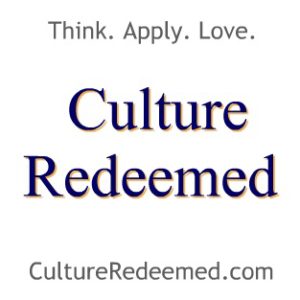If our bodies don’t really mean anything, then we will act as though we can assign them meaning at random. We will act, or others will act, as though our bodies – free of real meaning – can be used, in a given moment, for nothing but pleasure or nothing but power or nothing but selfishness. We will act as though bodies can be disregarded or discounted. We will act as though bodies can be used as commodities, bought and sold on the free market. (p. 15)
We live in a very broken world. Much of our brokenness, many have argued, is centered around the long-misguided views and uses of the physical body. The first national survey conducted of adults regarding sexual abuse published its findings in 1990 with the staggering statistics that 1 in 4 girls and 1 in 6 boys will be sexually abused before the age of 18. Many since then have suggested the rates to be even higher. In his book The Wounded Heart, Dr. Dan B. Allender confesses, “At times, I wonder if every person in the world, male and female, young and old, has been sexually abused.” His musings are not unfounded.
What if sex is not about a list of rules, a set of dos and don’ts? What if sex isn’t, most of all, about us? What if sex is about God and who God is and about God’s good intentions for creation? . . . [T]he way Christians do and don’t have sex is about who God is and the good life God wants for us. (p. 10)
The immediate verse following the sumptuous tastes of a forbidden fruit in Genesis tells us that “then the eyes of both were opened, and they knew that they were naked” (Gen 3:7a). From the very first moment that sin entered our world, the human body felt its effects. “And the Lord God made for Adam and for his wife garments of skins and clothed them” (Gen 3:21). And since man’s first shortcoming, God has been clothing our unrighteousness, covering our shame, and redeeming our transgressions. This is the basis of the book Faithful: A Theology of Sex by Beth Felker Jones. From the marital bed to celibacy, from exploitation to false notions of purity, from a glory once known to a panoptic fall and a redemption unwarranted, Jones’ extrapolation of the Bible’s real teachings concerning the human body are both piercing and refreshing.
What if, instead of teaching that we can “expect to get married,” we taught that everybody’s body matters and that everybody’s body can be a sign of faithfulness to God? (p. 91)
After having several of my friends, both married and single, recommend the book, I added it to my reading list. In just over 100 pages, it is the most profound book on the subject that I have read to date. Without question, it should be required reading for every person with breath in their lungs.
We don’t need a sexual ethics based on fear. God, not shame, is the reason for chastity, and God, not shame, is the one who can change our behavior. (p. 74)
Our world is rampant with pornography, unrealistic romantic expectations, sexual abuse, an idolization of marriage, fear-based coercion of purity, a disconnect of sex from intimacy, impossible standards for body image, the exploitation of human bodies, the degradation of morals, a transient notion of gender, and an overall culture that worships and yet devalues the human body on a worldwide scale. Where is a Christian to turn to find truth about the human body and God’s real purposes for it? How is the Church to cultivate a truly Biblical foundation for her members to build upon as image-bearers of the Most High? These issues, these questions, and so much more are unabashedly confronted in Jones’ book.
What if we taught that men and women are precious? What could we do to make it clear that said preciousness is unconditional, that there is nothing we can do, nothing that can happen to us, that can take away our status as free, image-bearing children of the Creator? (p. 92)
As a godly woman with a broken notion of God’s goodness for and through our bodies, the wife of a husband who is equally broken, the mother of two quickly maturing girls, the mother of a growing boy, and an undeniable daughter of the Most High, this book and the Biblical truths defined in it have single-handedly given me hope for the sexual problems facing our world. The doctrines in Jones’ work can be applied to singleness, marriage, child-rearing, counseling, preaching, and worship. They can be a healing salve for those who are or have glorified their own attempts at purity, thought lost something they never owned, searched for the value of their gender, struggled with their sexual identity, and the 1 in 4 or 1 in 6 who have been sexually traumatized. The declared goodness of God’s created bodies is real. The fallen condition of those bodies is real. But the Jesus of the Bible is also real. And with Him comes a redemption impossible without.
Resurrection works by continuity. The Jesus who died on Friday is the same Jesus who is raised from the dead on Easter Sunday. He still eats fish, and he bears the scars of his crucifixion. The seed that was planted in the earth is the same individual and the same species as the plant that grows from it (1 Cor. 15). God kills all those things about bad sex that destroy human flourishing. God kills all those things about bad sex that tell lies about reality, which fail to testify to the God who is faithful. When God kills pornication , he raises it from the dead as desire redeemed. He raises it as sex that tells the truth about reality. Desire is God’s good creation, and God will not let it go. (p. 56)
Buy it from Amazon: Faithful: A Theology of Sex by Beth Felker Jones

































Wow! Very enticing. Looks like I need to read this book along with the rest f the world.
Thanks for this recommendation…on my summer reading list as of this moment : )